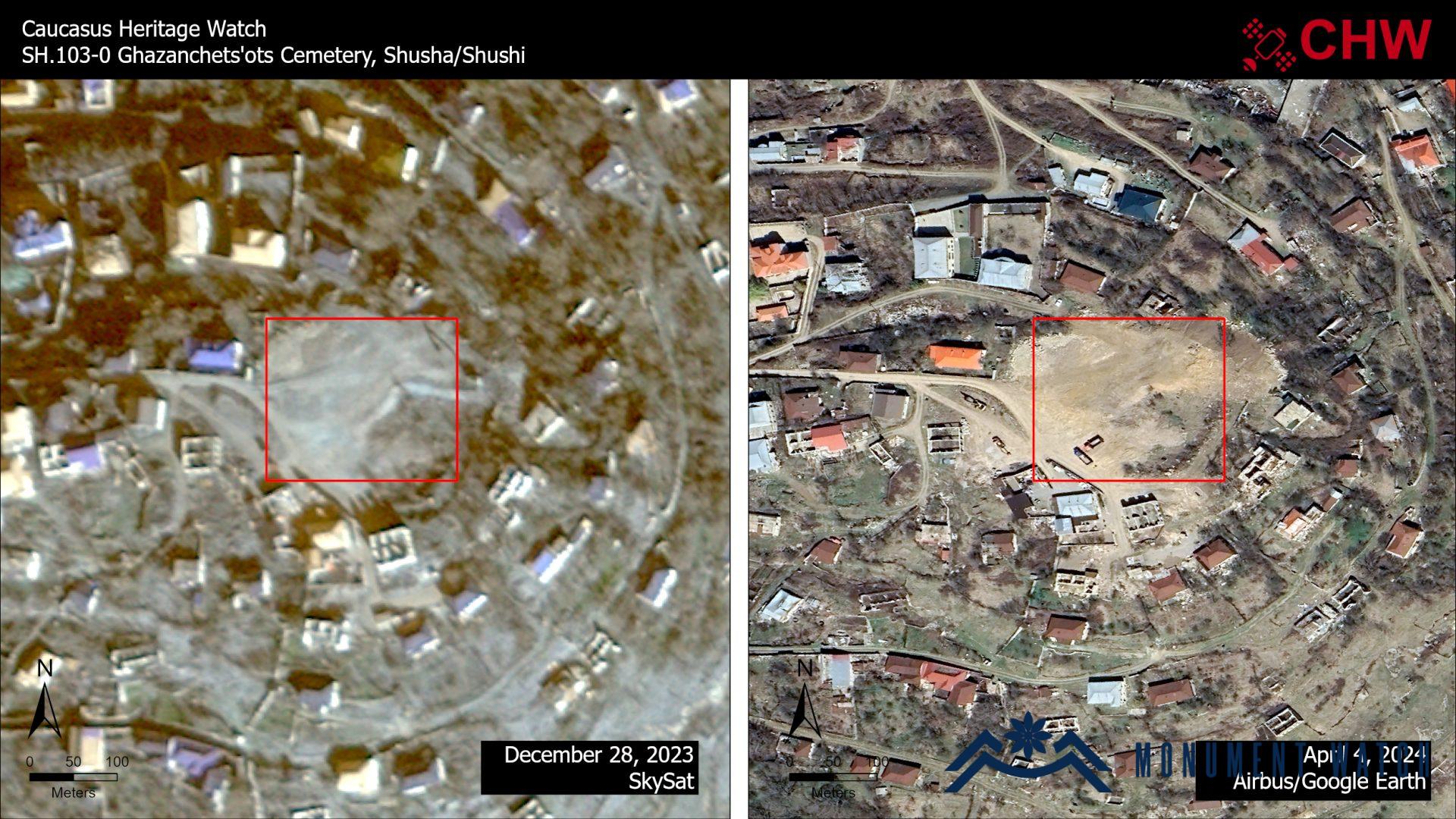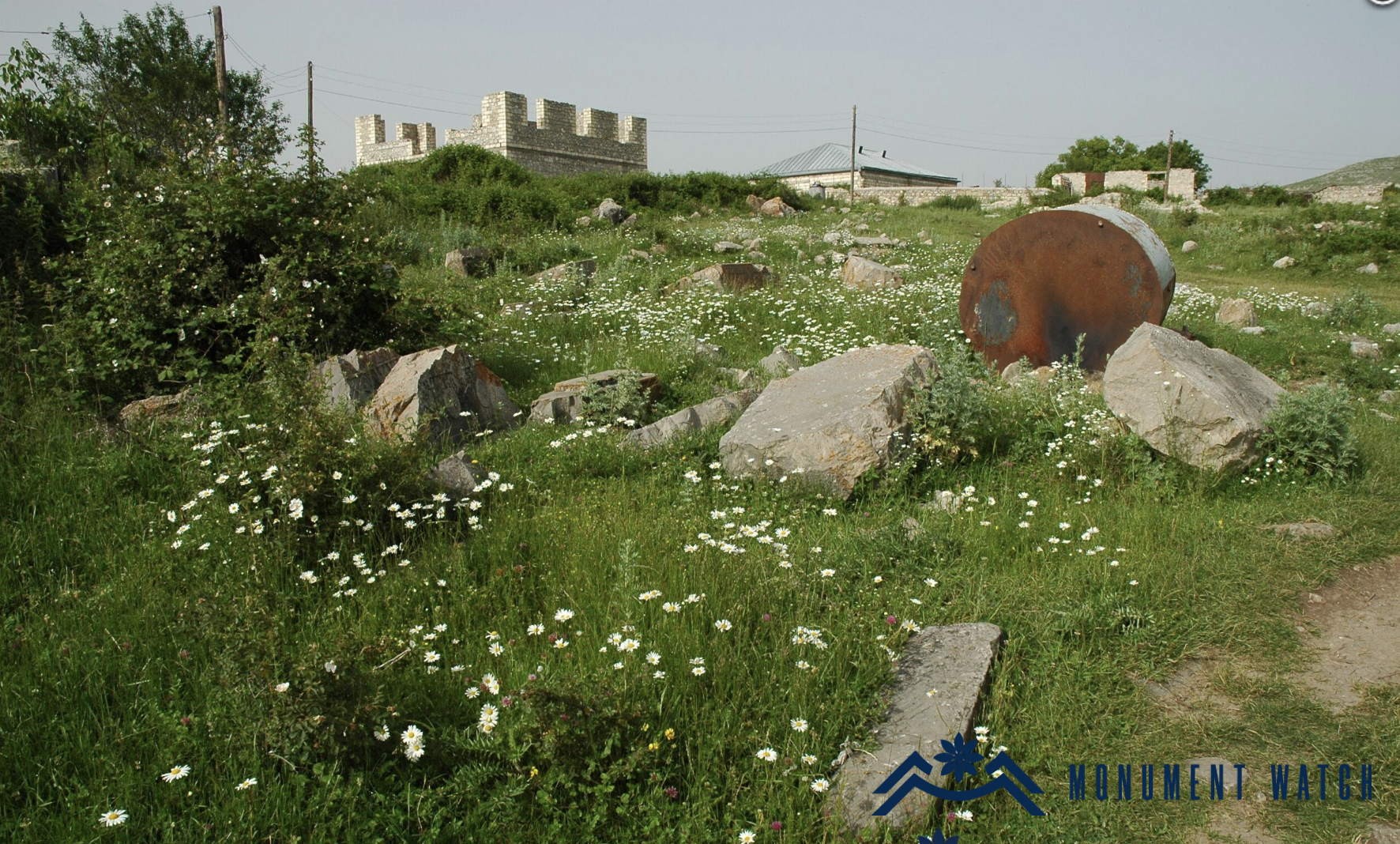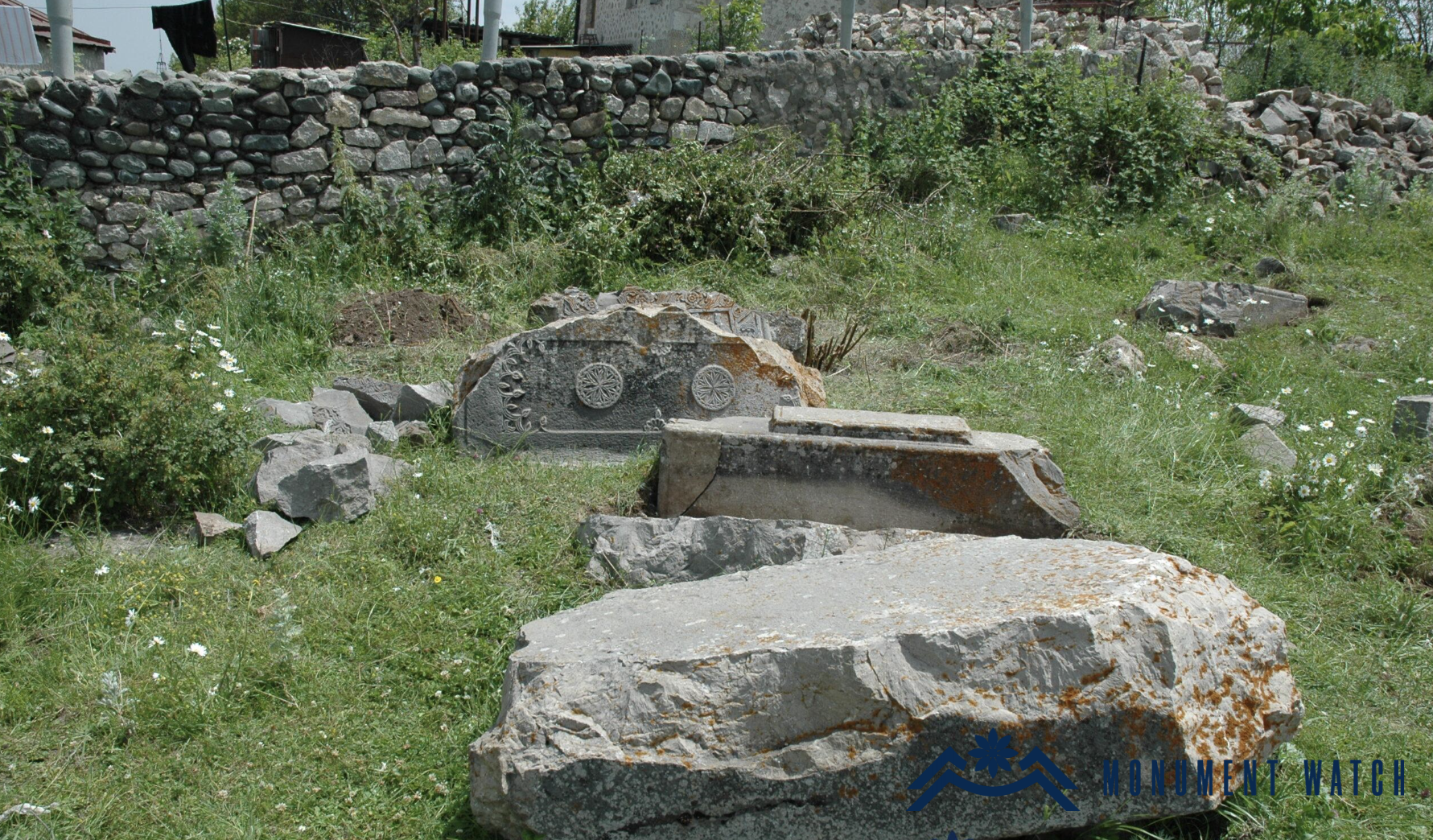Azerbaijan destroyed the Old Ghazanchetsots cemetery in the city of Shushi
As a result of satellite monitoring conducted by the "Caucasus Heritage Watch" initiative, it became evident that on April 4, the Ghazanchetsots or Old Cemetery of Shushi was destroyed (https://caucasusheritage.cornell.edu/?p=1593 , Fig. 1). The destruction of the cemetery began as early as October 2023, with reports of numerous gravestones from the 18th and 19th centuries being destroyed (details: https://monumentwatch.org/en/alerts/azerbaijan-engages-in-the-destruction-of-cemeteries-in-shushi/).
Our response
The destruction of historical cemeteries in the occupied territories is a clear indication of Azerbaijan's policy direction. As a result of this policy, the cemeteries of Mets Tagher, Sghnakh, Shushi Northern, and Yerevan gates, as well as the cemetery near the village of Vazgenashen, have already been destroyed.
Article 4 of the 1954 Hague Convention for the Protection of Cultural Property in Time of Armed Conflict prohibits any acts of vandalism, theft, robbery, misappropriation, hostilities, and reprisals against cultural heritage. Additionally, the first Hague Protocol of 1954 forbids the destruction of cultural or spiritual values in occupied territories.
The deliberate destruction of cultural heritage is also condemned by UNESCO's 2003 declaration "On the Deliberate Destruction of Cultural Heritage".
It's crucial to note that the destruction of a cemetery can be regarded as a crime against personal dignity, as deceased individuals are included among the affected "persons" according to the interpretation of the Rome Statute. Therefore, desecrating corpses through the destruction of cemeteries, which violates the cultural burial practices of the deceased, can be seen as an affront to personal dignity. The destruction of cemeteries violates the right to culture of Artsakh Armenians, impeding their ability to preserve their memory. It's important to remember that the right to culture is fundamental, as outlined in Article 27 of the Universal Declaration of Human Rights and Article 15 of the 1966 UN Covenant on Economic, Social, and Cultural Rights. The lack of access to heritage and the resulting inability to perform traditional burial rituals can deprive communities of the opportunity to maintain their cultural practices (See UN General Assembly, Resolution 72/258 (26 January 2021), promoting a culture of peace and tolerance to safeguard religious sites). Consequently, this also violates the right of future generations to live according to their cultural heritage.


